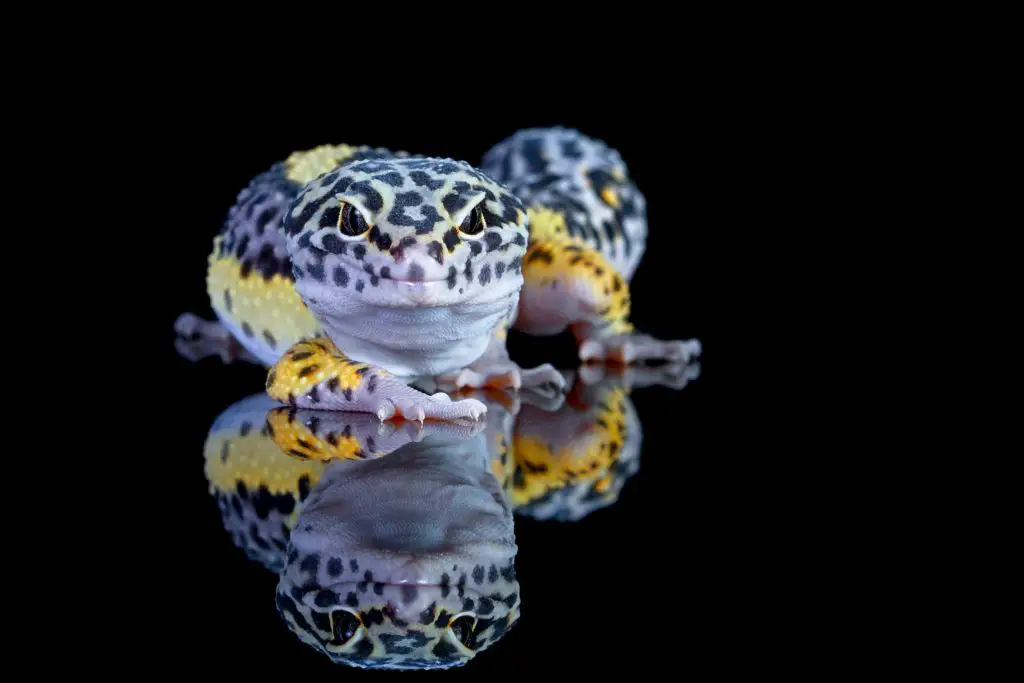You must give your Leopard Gecko calcium and other minerals on a regular basis. Let’s learn more about which supplements your pet needs to thrive…
Last updated on February 14th, 2023 at 09:53 am
Leopard Geckos need calcium supplementation twice a week. If exposed to UVB light, they only need a calcium supplement. If they aren’t exposed to UV, then you must give them a calcium + Vitamin D3 supplement instead. In both cases, you also need to supplement their food with a vitamin supplement once every week or so.
The easiest way to give these supplements is by using powdered supplements that can be dusted on their food. If feeding mealworms, you can also leave them in a bowl with some of the powder and let your gecko eat them at its leisure.
Whichever you prefer, it’s important to do it – supplementation is a vital part of Leopard Gecko care!
How do I give my leopard gecko calcium?
One way to provide calcium for a leopard gecko is through its diet. By feeding them insects that have been dusted with calcium, vitamin, and nutrient powder, the gecko can receive the necessary nutrients for their growth and development.
It’s important to ensure that the powder used is specifically formulated for reptiles and not a generic multivitamin supplement.
In addition to providing calcium through their diet, it’s also important to maintain an appropriate temperature and humidity in the habitat to aid in digestion. While geckos can benefit from UVB lights, it’s not mandatory if you are providing proper supplementation (more on this in a moment) .
Mineral blocks or cuttlebone can also be provided, but should not be relied on as the sole source of calcium. Some geckos just ignore them!
Fortunately, with proper care and nutrition, owners can successfully provide their pet leopard gecko with the necessary calcium levels for optimal health.
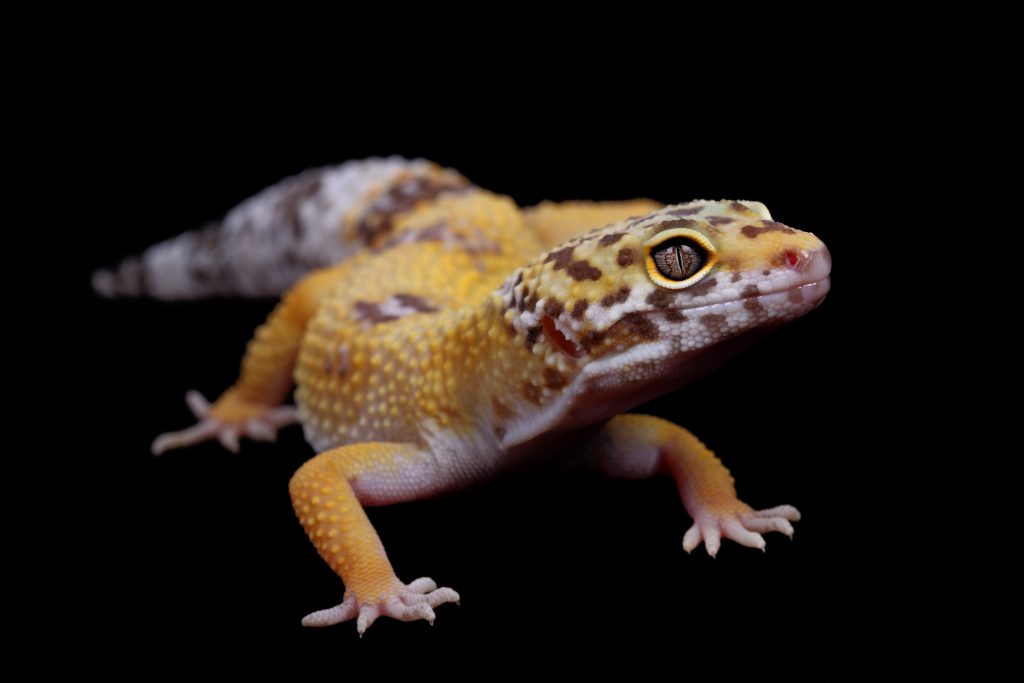
Leopard gecko calcium with or without d3
Regarding leopard gecko nutrition, many owners turn to commercial diets that provide the necessary vitamins and minerals for their pet’s health. However, it is important to consider the sources of these nutrients, specifically calcium and vitamin D3.
While some commercial diets may include a form of calcium carbonate, supplementing with an additional source of calcium that includes vitamin D3 can be beneficial for bone development and overall health. This supplement can come in powdered or liquid form or even small insects that have been dusted with calcium powder.
Regular monitoring of your leopard gecko’s diet and consulting with a vet can help ensure they are receiving the proper amount of essential nutrients like calcium and vitamin D3.
In a nutshell: you should always provide vitamin and calcium supplements. If you do not provide UV light for you gecko, then those supplements must also contain vitamin D3.
At this point, it’s probably a good idea to look at a quick reference table that tells us what exactly calcium and vitamin D3 do. After all, there’s no point in me telling you your pet needs them unless we actually know what for….
Functions of Calcium and Vitamin D3 in reptiles
| Calcium | Vitamin D3 |
| – supports bone growth in juveniles | – stimulates calcium absorption from the gut (intestines) |
| – helps muscles contract (through the release of calcium ions from nerve endings) | – helps maintain normal calcium levels in blood plasma, preventing it from being taken from the skeleton |
| – helps females make eggs | – helps maintain good calcium metabolism, allowing it to be used for all of the functions seen to the left |
| – maintains skeletal (bone) mass in adults | |
| – activates coagulating factors that stop bleeding. These help with blood clotting to stop bleeding after injuries |
*Note: heat is part of every reptile’s metabolism. No vitamin D3, calcium, or other supplement will have any effect if your pet isn’t warm enough.
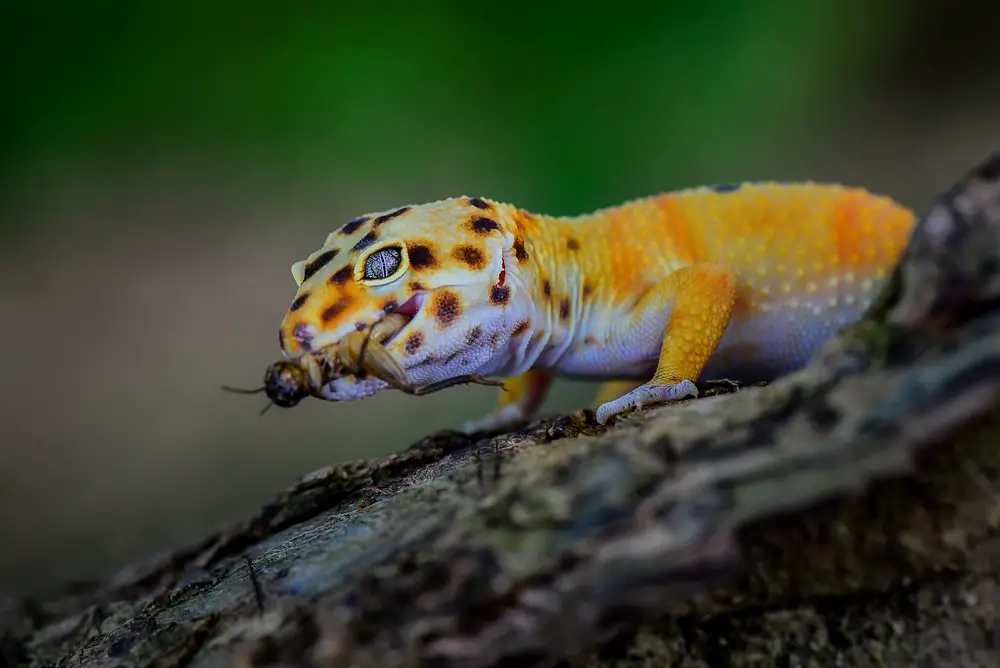
Do leopard geckos need D3 if they have UVB?
While UVB is necessary for vitamin D3 production in reptiles, there has been some debate over whether leopard geckos require additional supplementation of vitamin D3 in their diet.
Leopard geckos do fine without Vitamin D3 if they have adequate UVB light exposure. While UVB is not necessarily essential for proper calcium uptake, geckos do need Vitamin D3 in some form to absorb calcium properly.
This means that if a leopard gecko does not get enough D3, it will not be able to properly absorb the calcium from its food. This situation results in metabolic bone disease, which can result in death.
D3 can be given to them through either UVB lighting, or through a calcium and vitamin D3 supplement. It doesn’t matter which one – just as long as they get it!
Leopard gecko d3 overdose
As a highly popular reptile pet, owners have the right resources available to properly care for their leopard geckos. One critical aspect of this care is ensuring that their diet provides the right balance of nutrients, including Vitamin D3.
However, in some cases, owners may accidentally over-supplement their pet’s diet with Vitamin D3. Unfortunately, this can lead to a dangerous overdose and subsequent calcification of the gecko’s organs.
In severe cases, it can even result in death. It is essential for leopard gecko owners to closely monitor their pet’s diet and avoid over-supplementation with Vitamin D3.
Remember, calcium with vitamin D3 supplements should only be given twice a week for juveniles and young adults, or once a week for adults. More than this risks overdose (hypervitaminosis D).
If you have concerns about your pet’s vitamin levels, consulting a veterinarian specializing in reptiles is highly recommended. Taking these precautions can ensure the health and longevity of your beloved leopard gecko.
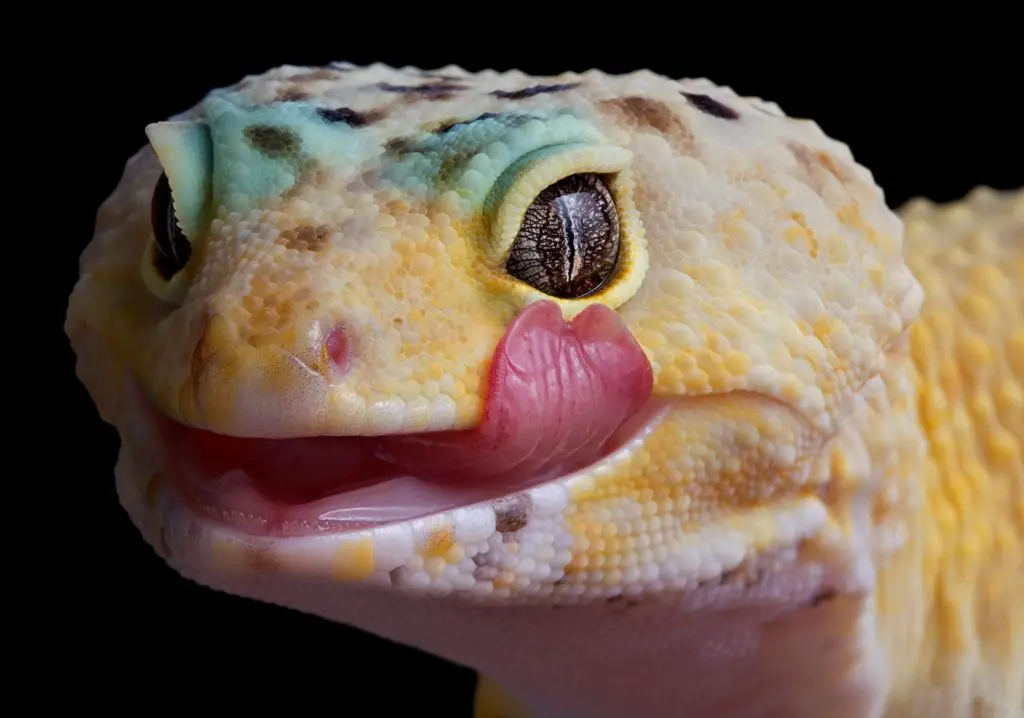
Leopard gecko calcium overdose
One of the potential dangers of keeping leopard geckos as pets is that they can easily overdose on calcium.
Leopard geckos need a diet high in calcium to keep their bones healthy. But if they consume too much calcium, it can lead to calcification of their organs and, or their death.
Can I leave calcium powder in my leopard gecko tank?
When caring for leopard geckos, it is important to provide them with proper nutrients, including calcium. Some owners keep a dish of calcium powder in their gecko’s tank for easy access.
However, the powder mustn’t contain vitamin D, as too much consumption can harm the reptile’s health.
If you choose to utilize calcium powder in your leopard gecko’s tank, select a product without added vitamins and monitor the dish for cleanliness. This will help ensure that your pet receives the nutrients they need without any potential harm.
Can I put calcium in my geckos water?
There are various options available when it comes to supplementing calcium in your gecko’s diet. One option is to dust their food with a calcium supplement, but another popular method is to add liquid calcium to their water dish.
This option is particularly convenient for those who feed their geckos pre-packaged meals, as it ensures they receive the proper amount of calcium no matter what they choose to eat.
However, it is important to use caution when adding liquid calcium to water bowls. Some geckos may not consume enough water daily for the supplement to be effective, and introducing too much calcium can lead to serious health issues.
Personally, I think that powder supplements are a much better (and safer) option than liquid ones.
How often should I give my leopard gecko vitamins?
While insects should make up the bulk of their diet, these reptiles also benefit from occasional vitamin supplementation.
But how often should you give vitamins to your leopard gecko? Generally speaking, daily supplementation is unnecessary and can even be harmful in high doses.
Instead, experts recommend providing vitamins once or twice a week, every alternate week. That is, if you feed your gecko vitamins twice this week, skip the next week and repeat on the week after.
By following this schedule, your leopard gecko will receive the necessary nutrients to maintain good health without risking vitamin overload.
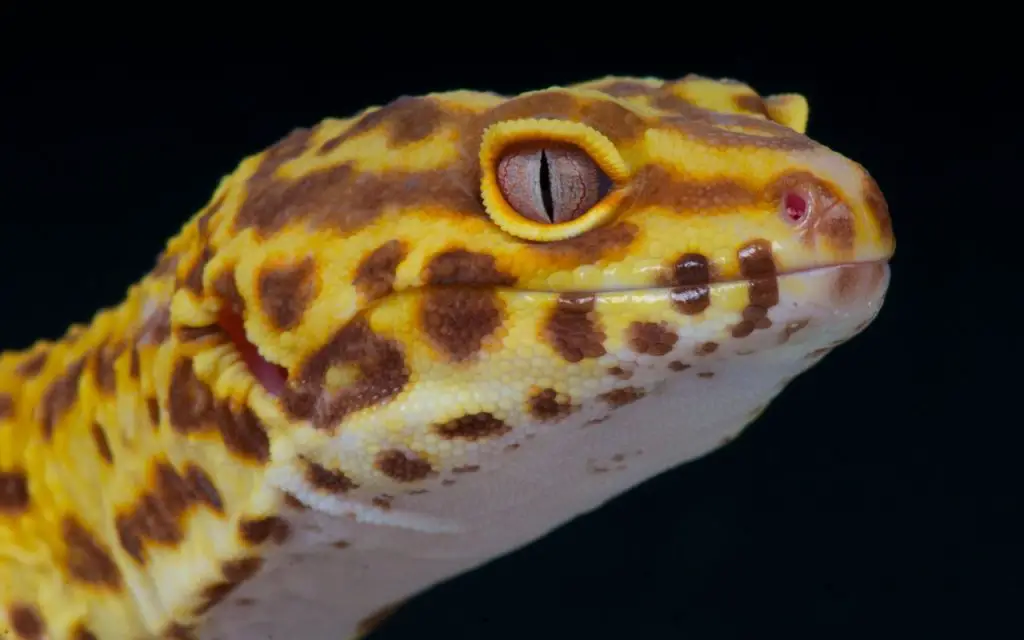
Multivitamin for leopard gecko
To ensure they receive all the necessary vitamins and minerals, they are provided with a multivitamin supplement. These supplements come in various forms, including powders that can be sprinkled on food or added to water.
The main thing to remember is to always use a supplement made specifically for reptiles. Go for trusted brands like Zoo Med or Repashy.
It is also important to provide pure calcium, preferably enriched with vitamin D, as leopard geckos require these nutrients for healthy bones and shedding.
As always, consult your veterinarian before introducing new supplements into your leopard gecko’s diet. You can contribute to your reptile’s overall health and well-being by providing a multivitamin and calcium supplement.
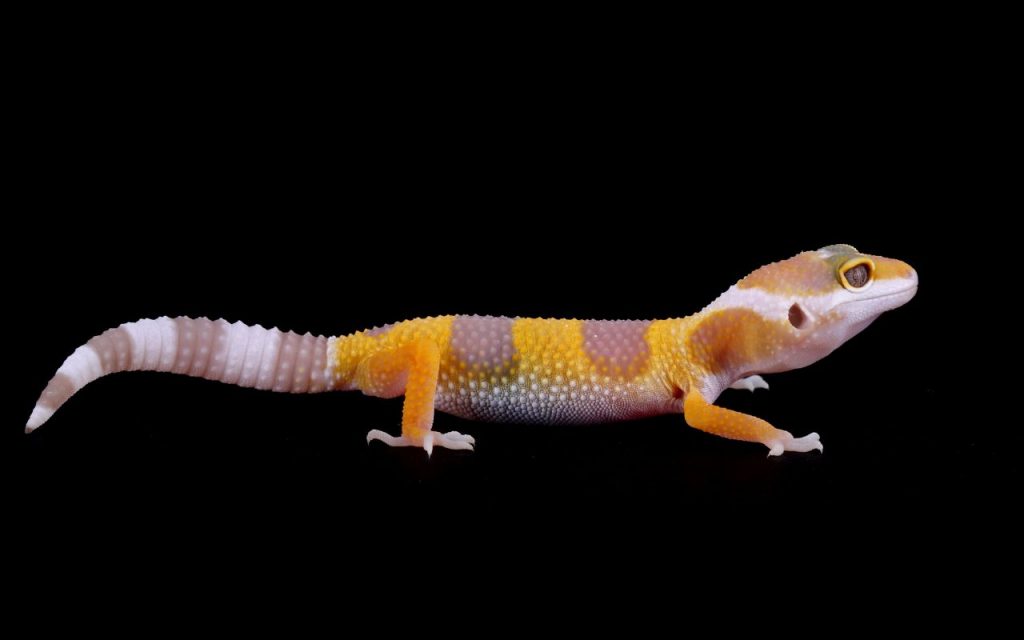
Why do leopard geckos need multivitamins?
- Leopard geckos need multivitamins because they eat a varied diet in the wild
- Multivitamins help ensure they get all the essential nutrients and lead to healthier skin, bones, eyes and metabolic processes
- Leopard geckos can extract most of the nutrients they need from their prey, but there are some essential nutrients that they can only get from supplements
- Multivitamins also help to optimize digestion and absorption of food
FAQ relating to how often should I give my leopard gecko calcium
Do geckos need calcium every day?
Calcium is crucial for a gecko’s overall health and development, and it should not solely rely on insects as a source. This is because insects are a poor source of calcium.
That said, they don’t need to be given calcium supplements every day. You can simply give it to them once a week for older animals or twice for young ones (every time you feed them, basically).
A diet predominantly consisting of insects can lead to a calcium deficiency, as they do not contain enough of the mineral for proper absorption. Supplementation is necessary to ensure that your gecko gets enough calcium daily.
It is important to note that not all forms of calcium are created equal. When considering supplements, look for ones containing vitamin D3 if you’re not providing UV lighting as it helps absorb calcium into the bones.
Can you give a leopard gecko too much calcium?
Leopard geckos can excrete excess calcium, so it is rare for them to have problems with too much calcium. However, if a leopard gecko ingests more calcium than it can excrete, the excess calcium can form calcium sacs.
Calcium sacs are not life-threatening but can cause health problems for the leopard gecko. So it is important to monitor your leopard gecko’s diet and ensure that it does not consume too much calcium.
Should I put a bowl of calcium in my leopard gecko tank?
Your leopard gecko should get most of the calcium it needs from its diet. A bowl of calcium in the tank can be tempting, but it’s unnecessary and harmful if your gecko eats too much.
Excess calcium can cause health problems like metabolic bone diseases. Instead, ensure your leopard gecko’s diet is high in calcium and vitamin D3 without overdosing your pet.
There are several good food options for leopard geckos, including crickets, mealworms, Dubia roaches, waxworms, and super worms. You can also give your gecko a Calcium Plus supplement to ensure it gets enough calcium daily.
Conversely, some prey items can be left in bowls of powder supplement in the cage, read our Leopard Gecko care guide to learn more about this.
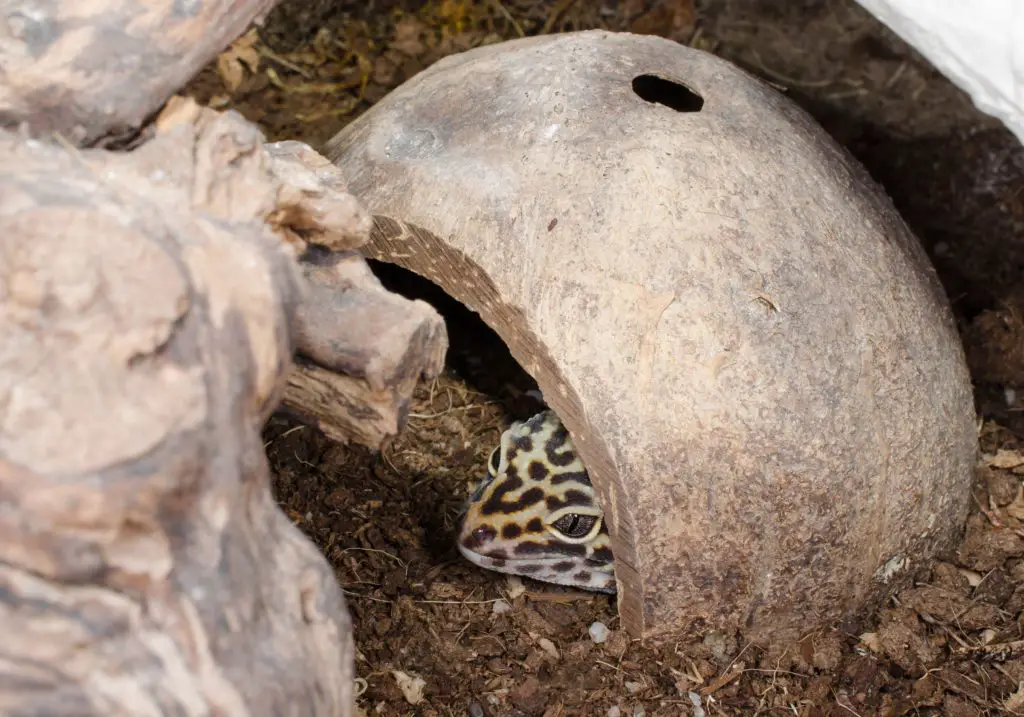
How do I give my leopard gecko calcium?
Leopard geckos need a diet that is high in calcium. You can give your leopard gecko calcium by dusting the insects with a vitamin nutrient powder.
Vitamin D3 is also essential for good bone health and helps the body to absorb calcium. UVB exposure may benefit geckos, but there’s no conclusive research on this subject yet.

